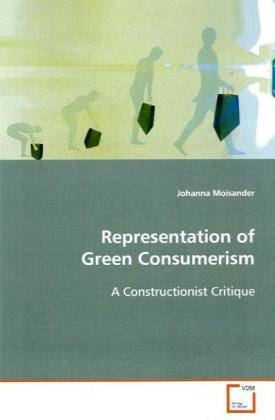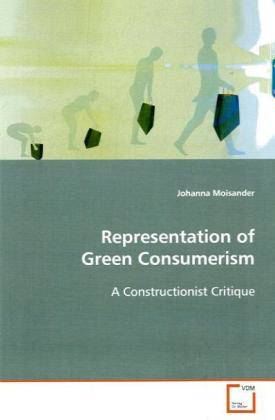
Bedankt voor het vertrouwen het afgelopen jaar! Om jou te bedanken bieden we GRATIS verzending (in België) aan op alles gedurende de hele maand januari.
- Afhalen na 1 uur in een winkel met voorraad
- In januari gratis thuislevering in België
- Ruim aanbod met 7 miljoen producten
Bedankt voor het vertrouwen het afgelopen jaar! Om jou te bedanken bieden we GRATIS verzending (in België) aan op alles gedurende de hele maand januari.
- Afhalen na 1 uur in een winkel met voorraad
- In januari gratis thuislevering in België
- Ruim aanbod met 7 miljoen producten
Zoeken
€ 115,95
+ 231 punten
Omschrijving
Global warming has recently been pinpointed as an urgent challenge for environmental policy-makers and social marketers all over the world. In much of the academic literature on the topic, problems and solutions are conceptualized and framed in terms of individual choice. Ecologically minded green consumers are expected to function as a powerful market force, pushing society toward sustainable development. This book problematizes such individualistic ideas and sets out to rethink social marketing as a scholarly project. It argues that the ways in which consumers and consumption-related social problems are typically conceptualized and framed in the literature are inadequate for developing effective social marketing interventions because they fail to account for the cultural dynamics of marketplace activity. Drawing on constructivist epistemologies and poststructuralist social theory, the book builds an alternative approach to the study of green consumerism and consumers as targets of social marketing interventions. Overall, the book seeks to provoke discussion and debate on the topic among marketing scholars as well as environmental policy-makers and social marketing practitioners.
Specificaties
Betrokkenen
- Auteur(s):
- Uitgeverij:
Inhoud
- Aantal bladzijden:
- 272
- Taal:
- Engels
Eigenschappen
- Productcode (EAN):
- 9783639102710
- Verschijningsdatum:
- 2/12/2008
- Uitvoering:
- Paperback
- Formaat:
- Trade paperback (VS)
- Afmetingen:
- 152 mm x 229 mm
- Gewicht:
- 367 g

Alleen bij Standaard Boekhandel
+ 231 punten op je klantenkaart van Standaard Boekhandel
Beoordelingen
We publiceren alleen reviews die voldoen aan de voorwaarden voor reviews. Bekijk onze voorwaarden voor reviews.









